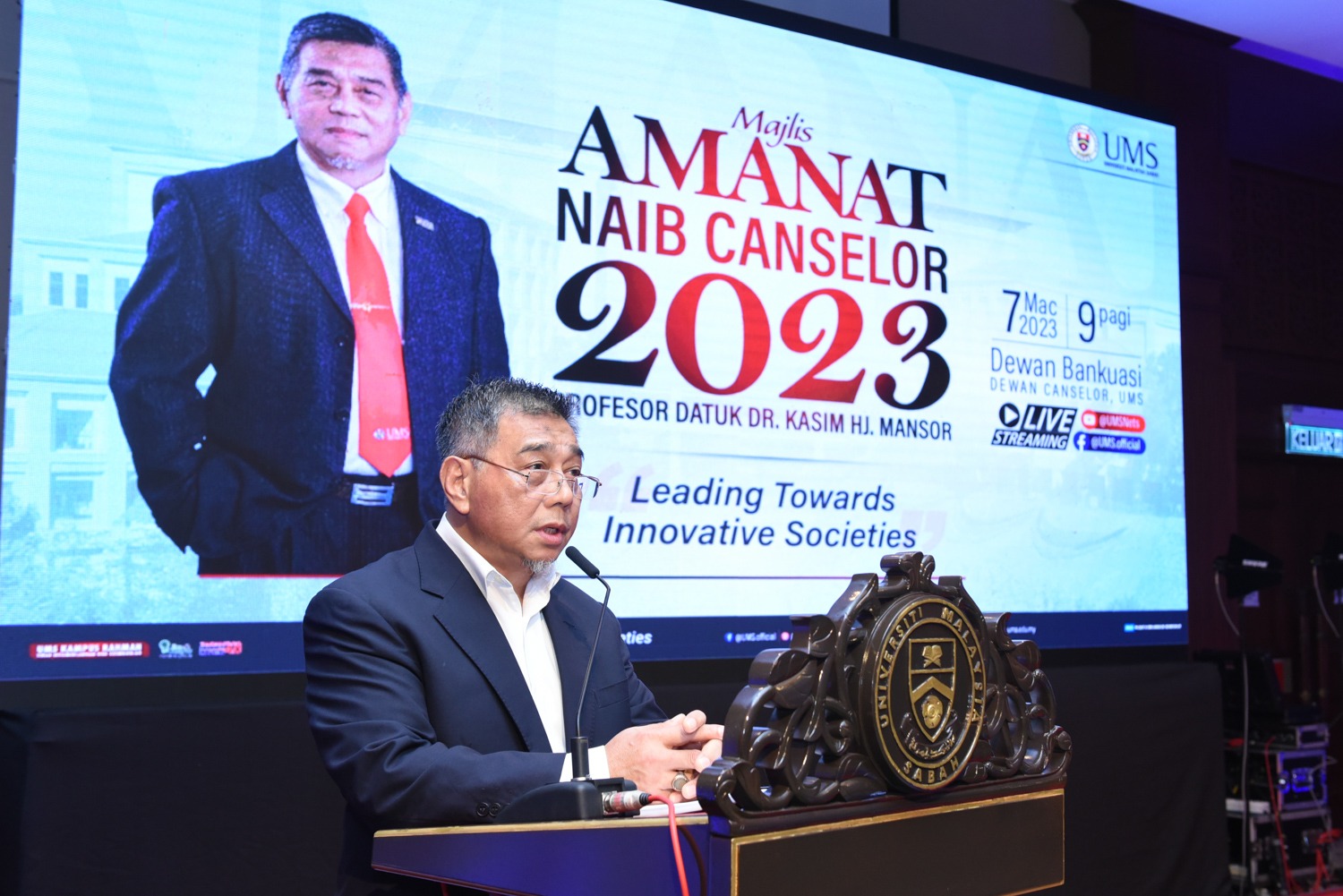 Universiti Malaysia Sabah (UMS) will implement the Student Empowerment Agenda starting 2023 involving four activities.
Universiti Malaysia Sabah (UMS) will implement the Student Empowerment Agenda starting 2023 involving four activities.
Vice-Chancellor Prof Datuk Dr Kasim Mansur said the activities are autonomy in activity management, autonomy in financial management, political autonomy of students and also full involvement in the Student Representative Council.
"Students will be involved in determining the decision and implementation of their program and also the distribution of subsidies or financial allocations.
"Students will also be given an autonomy to involve in politics on and off campus based on established guidelines.
"Meanwhile, campus elections will be fully implemented by students without the existence of a committee involving university officials," he said when delivering his address at the 'Amanat Naib Canselor 2023' event.
He also announced that the university management has approved an allocation of RM350,000 to ensure that students' accommodations are neat, comfortable and organised, for their mental and physical health to improve.
In order to accommodate the needs of students with disabilities, Kasim revealed that an additional fund of RM500,000 has been approved to improve infrastructure in the university.
To ensure the quality of internet coverage at the university is improved, he said a network system improvement project including an increase in the number of wifi is in the implementation process.
"This project covers the increase and replacement of the Wifi Access Points in dormitory by 1,327 units.
"To ensure cyber security, UMS has allocated RM400,000 for annual software and licensing.
"In order to improve the efficiency of network service monitoring and cyber security, we will establish an intelligent monitoring center known as the ICT Intelligent Command Center (ITeC) which is currently under construction and is expected to be fully operational at the beginning of April, 2023," he said.
According to Kasim, UMS is also in the process of producing the Enterprise Architecture (EA) document which is expected to be completed in May 2023.
"The production of this EA is very important to ensure that the information technology infrastructure and information systems used to support operations and decision making in the university can be developed, adapted and more efficient in the long term.
"In this 2023 we will also expand the use of Future Technology (Convergence Technology) covering the use of Blockchain, IoT, 600 Digital CCTV and upgrading teaching aids in lecture rooms and tutorials.
"Among other future technology initiatives, we will create a virtual world for UMS called Metaversity of UMS.
"Metaversity refers to a virtual world or virtual environment created to enable interaction and collaboration between users through avatars.
This will be a precursor to more widespread use in the future," he further elaborated.
In conclusion, Kasim expressed his appreciation towards stakeholders, strategic partners and all staff, including cleaning service staff, landscaping, maintenance and all entities involved in developing the excellence of the university.
The event was held at the Chancellor Hall and broadcast virtually.
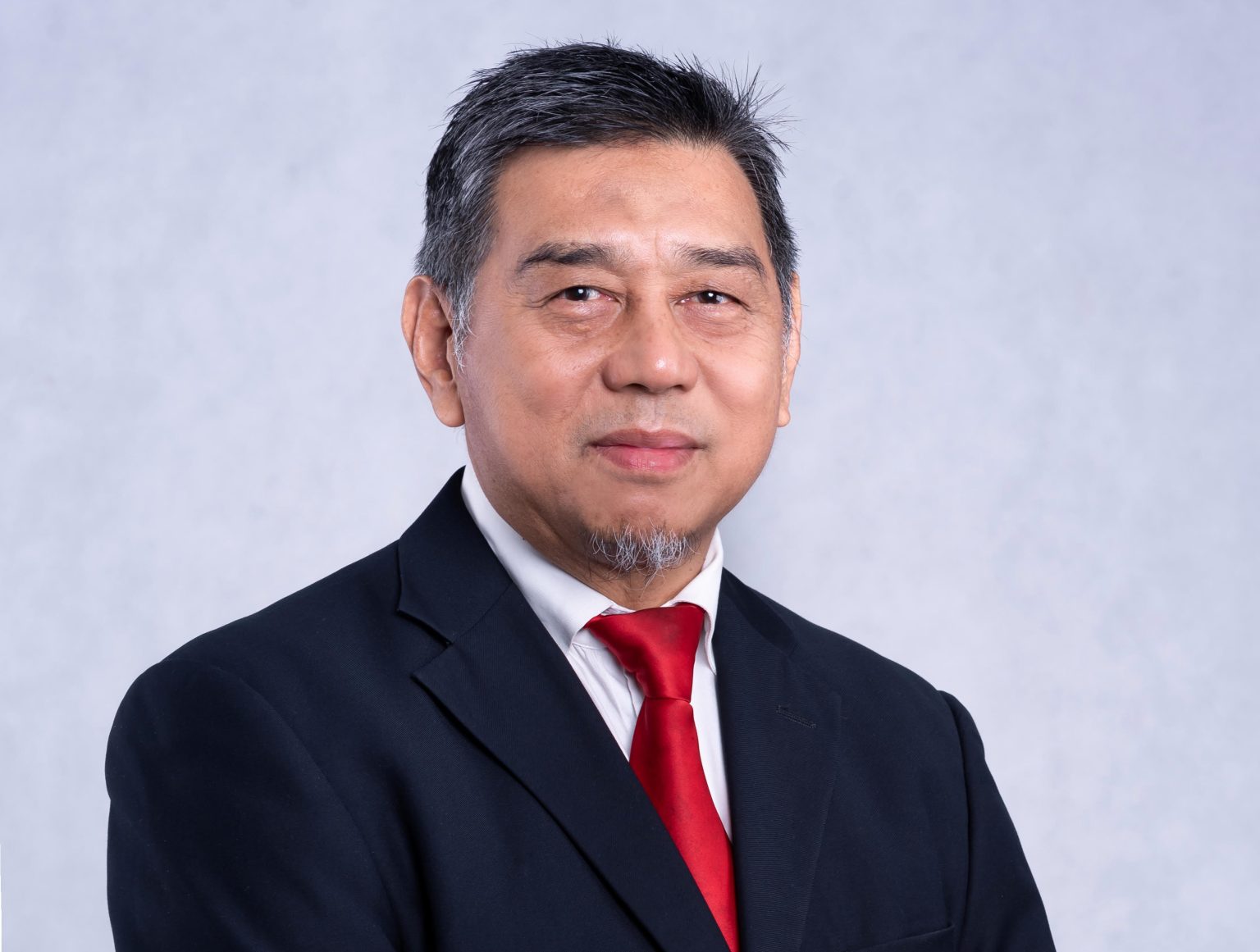 Universiti Malaysia Sabah (UMS) is allocating RM350,000 to overcome the serious water supply problem on the university campus.
Universiti Malaysia Sabah (UMS) is allocating RM350,000 to overcome the serious water supply problem on the university campus.


 Universiti Malaysia Sabah (UMS) will implement the Student Empowerment Agenda starting 2023 involving four activities.
Universiti Malaysia Sabah (UMS) will implement the Student Empowerment Agenda starting 2023 involving four activities.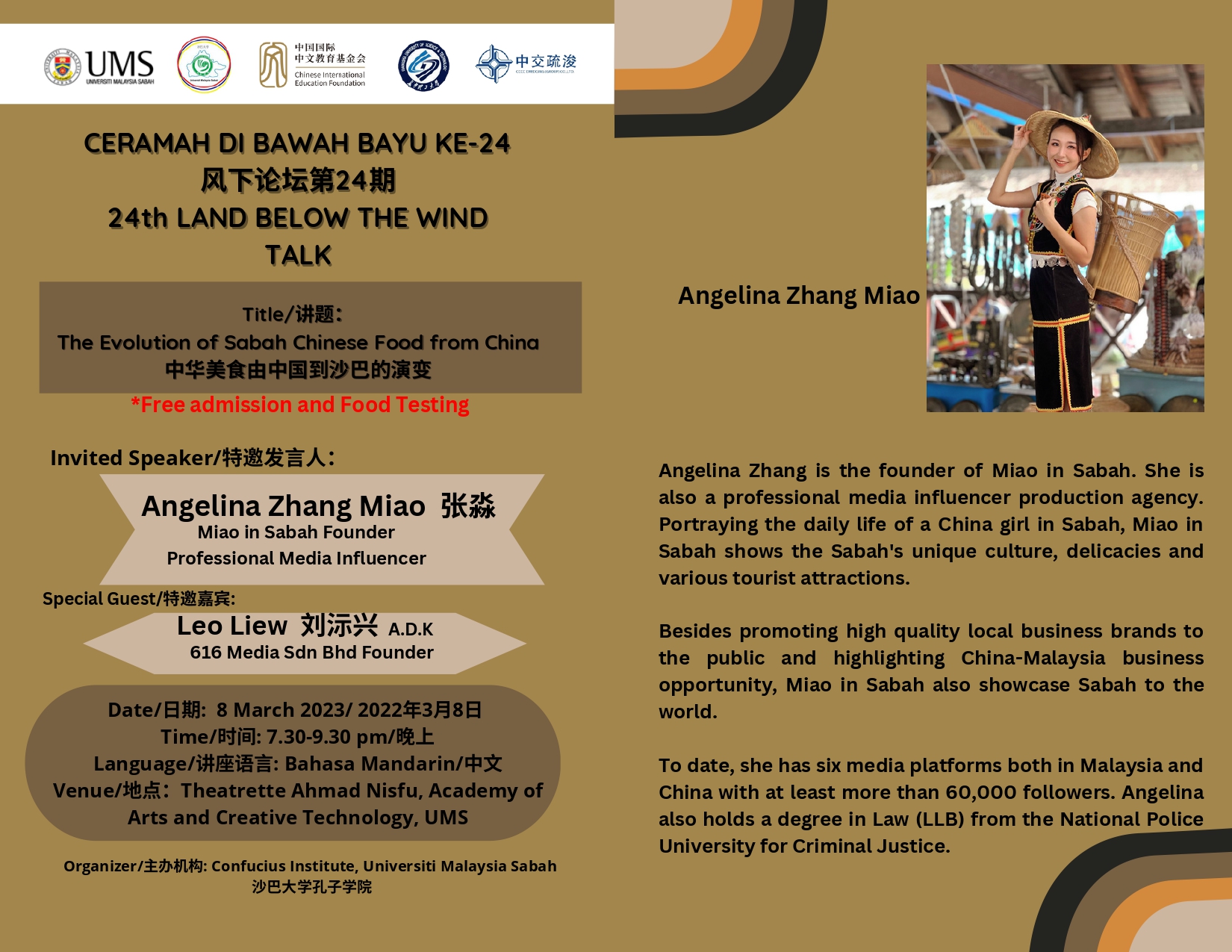 The Confucius Institute at Universiti Malaysia Sabah (UMS) will organize its 24th Land Below the Wind Talk on 8 March 2023 at Theatrette Ahmad Nisfu, Academy of Arts and Creative Technology, UMS.
The Confucius Institute at Universiti Malaysia Sabah (UMS) will organize its 24th Land Below the Wind Talk on 8 March 2023 at Theatrette Ahmad Nisfu, Academy of Arts and Creative Technology, UMS.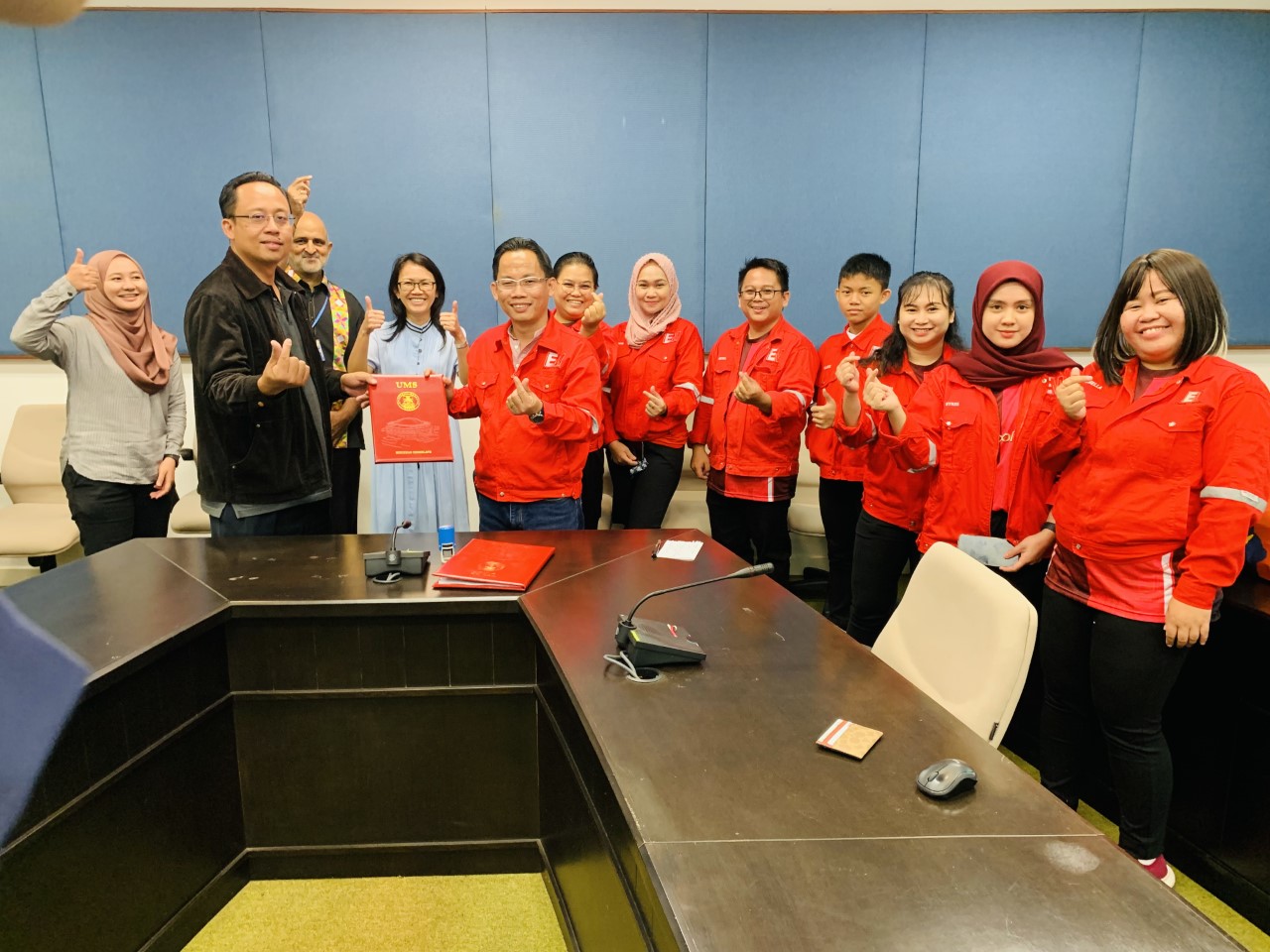 A collaborative research between Universiti Malaysia Sabah (UMS) and an oil and gas company will look into the possibility of providing clean water for people in the interior of Sabah.
A collaborative research between Universiti Malaysia Sabah (UMS) and an oil and gas company will look into the possibility of providing clean water for people in the interior of Sabah.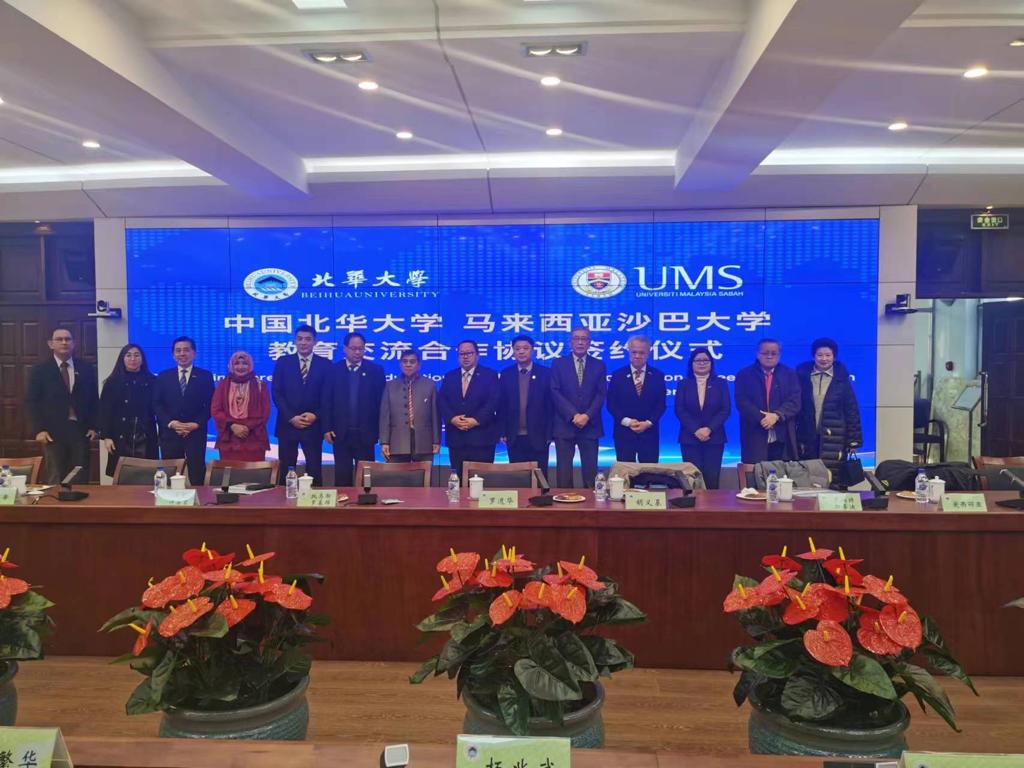 Universiti Malaya Sabah (UMS) will collaborate with China's Beihua University to explore Sabah's tremendous potential in traditional medicine and herb research.
Universiti Malaya Sabah (UMS) will collaborate with China's Beihua University to explore Sabah's tremendous potential in traditional medicine and herb research.